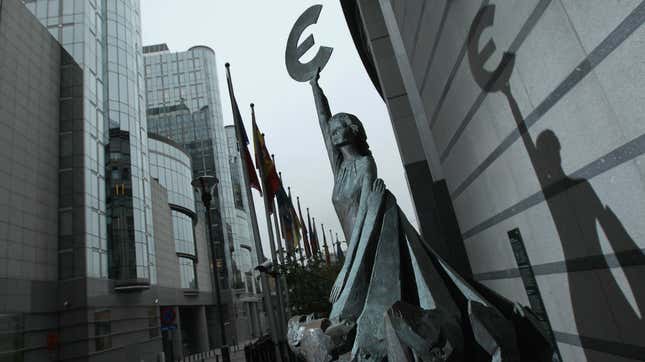
Euro zone policy makers have been discussing whether to establish a central budget for the euro zone following the presentation of a paper by European Council President Herman Van Rompuy. This could be a step towards a fiscal union, especially after Germany has made concessions, but I wouldn’t call this crisis over just yet.
First, this would not be the first time Van Rompuy has highlighted ways to draw a line under the eurozone crisis to great fanfare, only to have politics get in the way. In the past Van Rompuy also delineated how to take steps towards Eurobonds, without policymakers having made any progress on this since.
The German government has signaled support for rerouting taxes (including corporate and value added tax) to Brussels. How will the German (and Dutch, Austrian, and Finnish) electorate feel about this when they are paying higher taxes that are then redistributed not only to basket cases like Greece but also to Ireland, which benefits hugely from a low corporate tax rate?
Furthermore, what happens when countries cannot meet their fiscal targets? If Spain slips on its budget deficit—highly likely—will fiscal transfers be halted? Then we’d be back to square one with countries teetering on the brink of insolvency.
Finally, a step towards a fiscal union does nothing to address the issue of a political or banking union—both necessary to make the eurozone sustainable.
Euro zone policymakers are right that fiscal transfers are necessary to keep all current member states in the common currency union. But I doubt that politics can evolve fast enough to establish a fiscal union before countries choose to abandon the euro.